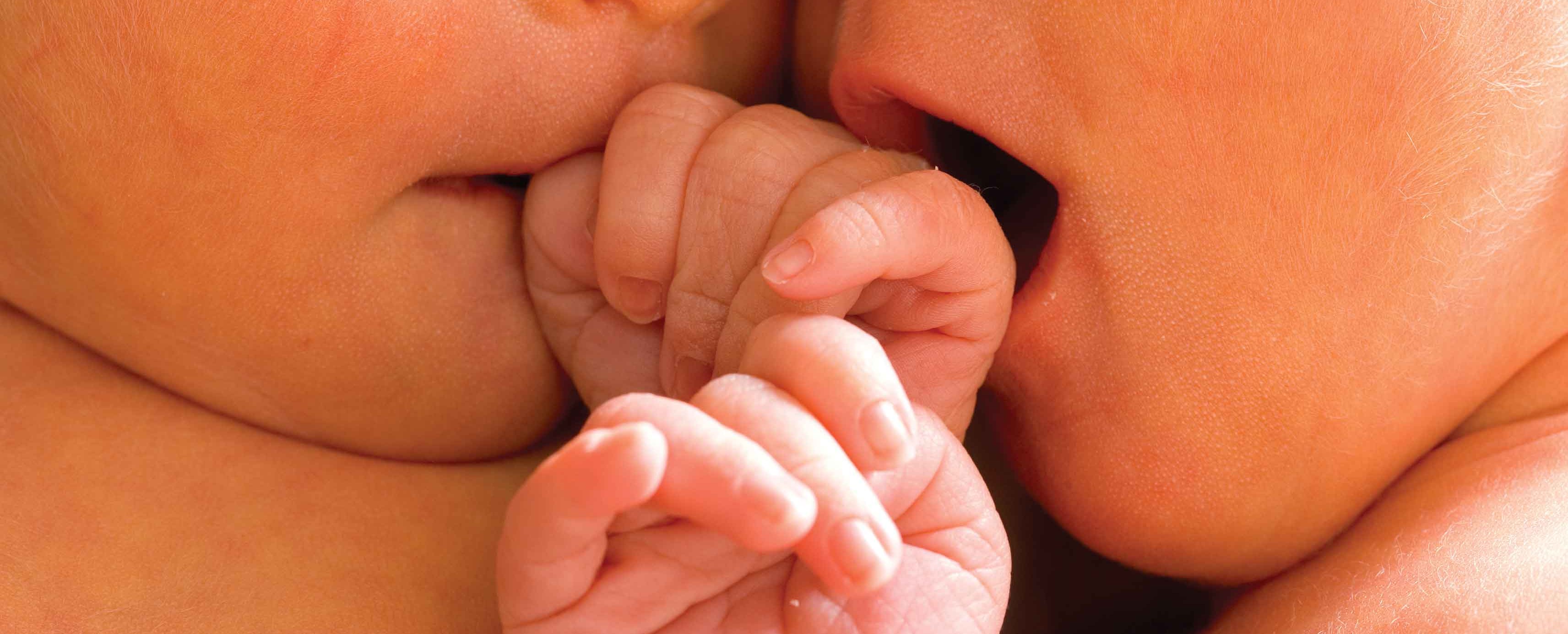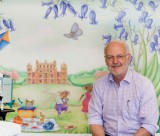
Spotlight
April 15th, 2013
Fertility ‘glue’ helps older women get pregnant
A Nottingham fertility clinic has seen pregnancies among older women increase by almost one-fifth following the introduction of an innovative product to aid conception.
Using Embryoglue, Nurture Fertility, run by the University, has seen a 19% increase in clinical pregnancies among women over the age of 34 who have previously had unsuccessful IVF cycles.
It is the only fertility clinic in the East Midlands offering Embryoglue, a viscous solution containing the compound hyaluronan which mimics the natural secretions found in the womb to increase the chances of embryo implantation.
Nurture Fertility’s Director of Research Dr Nick Raine-Fenning said: “The beauty lies in the fact it is a naturally occurring substance found in all of us but one that seems to have a very special role in the womb at the time of implantation.”
Pregnancy rates after IVF rose from 36% to 55% when Embryoglue is used in women aged over 34 who have had two or more unsuccessful cycles. A larger clinical trial of Embryoglue in all patients is planned.
The first patient to receive Embryoglue was Marie Lander, 39, of East Goscote, Leicestershire, who gave birth to twins Niamh and Niall following four years of trying for a baby with her husband Paul.
Read more: http://nott.ac.uk/fertility
Africa trip turns architecture plans of students into reality
Architecture students headed to South Africa over Easter to design and build three classrooms and a toilet block at a remote village school in Limpopo.
The Ago Sikolo ‘build a school’ project is the third time students have made the trip to work with the NGO Education Africa.
The 36 second year students from the Department of Architecture and Built Environment are paying for their flights, but they also need to raise £1,000 each to fund the project. Nearly £30,000 has already been raised.
Read more: http://nott.ac.uk/village Sponsor the project: https://www.justgiving.com/teams/AgaSikolo
Archaeology team hope to show benefits of venison
It’s cheap, healthy and sustainable, free-range and organic. So why aren’t we eating more wild venison? Archaeologists at the University are joining forces with the National Trust to promote the benefits of eating the meat by charting the history of a fallow deer herd at Charlecote Park in Warwickshire.
The project could offer a solution to the expanding deer population which damages to crops and woodlands and causes almost 70,000 accidents on Britain’s roads a year.
Dr Naomi Sykes, of the Department of Archaeology, and colleagues have launched the Fair Game Initiative, an educational campaign explaining the history of fallow deer.
The team are tracing the origins of Charlecote Park’s fallow deer herd and demonstrate the benefits of eating venison, which is sold through the gift shop.
They will DNA-test bone taken from antler trophies to trace the origins of the deer population as well as looking at the provenance of Charlecote’s current herd.
Dr Sykes and colleagues will also be training National Trust staff in the ancient method of ‘unmaking’ a fallow deer — a flamboyant medieval ritual in which the deer is skinned and butchered and then divided up among the community.
Dr Sykes hopes to roll the initiative out to other National Trust herds.
Read more: http://nott.ac.uk/venison
Tags: Ago Sikolo project, Charlecote Park, Department of Archaeology, Department of Architecture and Built Environment, Dr Naomi Sykes, Dr Nick Raine-Fenning, Education Africa, Embryoglue, Fair Game Initiative, Marie Lander, Nurture Fertility
One Comment
Leave a Reply
Other media

Children’s cancer expert backs Saatchi Innovation Bill Professor David Walker, a children’s cancer expert at Nottingham, is […]



January 17th, 2022 at 7:50 am
Dynamic Fertility
Good knowledgeable site and informative articles so thanks for sharing this site & information.. keep it up…